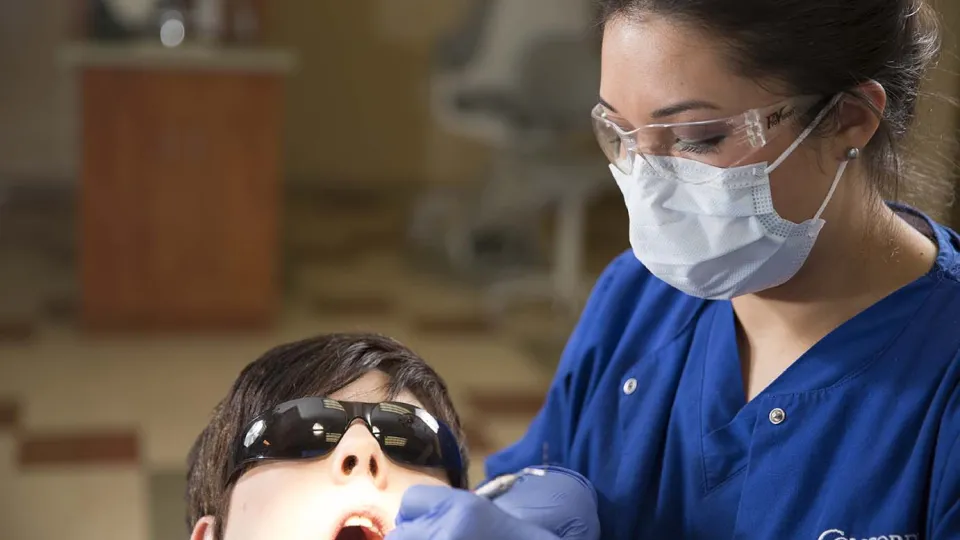
It's been a long-held debate in the world of Dental Hygiene. The electric toothbrush versus the hand-held. Which is best? Which is worse? What's the best way to get to those hard-to-clean spots? Gets that pesky tarter and plaque off the pearly whites so they can shine and be as healthy as can be?
We thought we'd lean on a couple of Concorde's top Dental Hygiene Program Directors and ask for their takes. Which side of the line do they fall on - technology or good, old-fashioned elbow grease?
Not always a clear choice when it comes to good Dental Hygiene
According to Marla Dunlap, Dental Hygiene Program Director at Concordes campus in Memphis, Tenn., the real answer to the question isn't so cut and dried.
"In my opinion, there is not a best choice here," she said. "It's merely what works best for the patient and their oral health needs."
If you have a patient with manual dexterity issues - neuromuscular disorder, elderly, arthritic patients - an electric brush is superior, Dunlap said, as the patient can't adapt a manual brush to access all areas needed or floss. If expense is an issue, a manual brush is superior, as long as the patient uses it properly along with routine flossing.
"If you are having issues getting a child to brush there are options for both electric and manual with characters and designs to encourage brushing," said Dunlap, stressing that children should be supervised until at least age 7 regardless, to ensure thoroughness. "There are cheaper electric brushes that are battery operated, however, you must be careful when using an electric brush and allow the brush to work. Ease up on the pressure, or you can cause damage."
"When using a manual brush you should always use a soft-bristle brush."
The case for electric in Dental Hygiene
Research shows electric toothbrushes are superior for removing dental bacterial plaque, said Diane Osso, Dental Hygiene Program Director at Concordes campus in Aurora, Colo.
"The main reason for this statistical difference is because the general public has a lack of understanding how to properly brush with a manual brush," she said. "Electric toothbrushes take technique errors out of the equation; the brush does the work for you."
"Electric toothbrushes are held in one area, toward the gum line and slowly advanced around the mouth getting all teeth surfaces, inside and out. These brushes have an internal timer that alerts once two minutes has been reached."
The end of the debate is that there is no real end to the debate. If you want to brush your teeth twice daily and not think about what you're doing while brushing, perhaps electric is the way to go. However, you can do an effective job with a hand-held with a little deliberation and tenacity. Better yet, attend a dental hygiene school like Concorde and find out for yourself the best way to care for your teeth and others.
"In conclusion," Dunlap said, "either brush is effective and successful if the user follows recommendations and instructions for use and of course flosses and visits the dentist regularly."
Take The Next Step Towards a Brighter Future
We have a Concorde representative ready to talk about what matters most to you. Get answers about start dates, curriculum, financial aid, scholarships and more!




